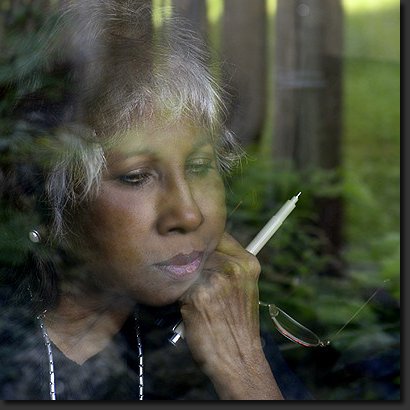
 A Piece of BreadI lean over the sink as I suck on a large yellow mango stone. There are bits of mango flesh around my mouth and on my cheeks. Mango juice runs in rivulets down my chin and drips into the sink. Ugh! Now it runs down my arm and drips off my elbow. I pause, I remember. I recall the time when I was small and my mother was tall and I wanted to read. It had been going on for years... "Occupation will be over, the English schools will be reopening," was all the talk I heard. For two years, friends and neighbours had been asking, "When is your daughter going to school? Isn't she old enough?" And for two years, I heard my parents say, "When the occupation is over, when the English schools re-open." Our country was occupied by the Japanese Army. My father would say to my mother, "I am never sending my only daughter to a Japanese school," and then add an emphatic, "Never!" For two years my school bag was packed and ready. With each season of waiting it got heavier. At first there was one long pencil, a sharpener, an eraser and an exercise book with double lines. After two years my school bag contained short stubs of many pencils, my favourite comic books, hair clips, used handkerchiefs, parts of broken toys, worn-out erasers, Tiger Tim, The Jungle Book and Grimm's Fairy Tales. Everything was coated in pencil shavings and graphite dust. I prepared again and again for school by sharpening my pencils and re-packing my bag. School was where I would learn to read. A special place for me only, not for my father and not for my mother, certainly not for my cats. Only for me and I would have the magic of reading. And then suddenly it did happen. The Japanese Occupation was over. Within months English schools were re-opening everywhere. Father had managed to get me entry into a school. I say "managed" because I was too old by two years to be attending kindergarten. I had a few unbearable weeks to wait before I could go to my magic world to read. I went to bed late and woke up early every morning asking my mother if that day was my school day. Finally the special day arrived. Mother fussed over getting me ready and perfect for school. Father blessed me. Our driver dropped my mother and me at the school gates in pouring rain. There were parents with umbrellas and young children milling everywhere. I let go of my mother's hand and ran into the school and sat down in the first room I could find. My mother caught up with me and coaxed me out to the main hall to be registered. All the children lined up, were registered and sent to various classes. At the end of a long morning, after a lot of confusion, I was seated in my own class. Some children were wailing, others sobbing and some were very quiet. No one paid any attention to me. I waited to read. The day dragged on with the teacher busy trying to console the frightened children and making sure her brood was complete. Then came the time when everyone was quietened. The teacher gave us mugs of milk and thick slices of warm bread with lots of butter. Having been brought up on dosai and iddli, I had never seen bread. I saw the other children eating their bread. I held my piece of bread aloft. I did not want it—I wanted to read. The warm butter started to ooze down my arm and hung in driblets off my elbow. Ugh! The teacher came over with a look of horror. "Oh, dear!" she said, as she wiped my arm. "Eat your bread, love." I did as I was told. I waited to read. Then we were all lined up and brought out of the class into the sunshine to be taken home by our parents. My mother was so proud of me. She asked me, "Did you learn to read?" I was very quiet for awhile, then burst out crying. "They only gave me a piece of bread," I sobbed. Now, thirty years later, I have the magic. I can read. I am also on a strict gluten-free diet. No piece of bread for me. 

 My two short story collections -- Floating Petals and Bathing Elephants -- are available in paperback editions and in electronic form for your iPhone, iPad, iTouch, computer or Kindle device at Nanadon. |